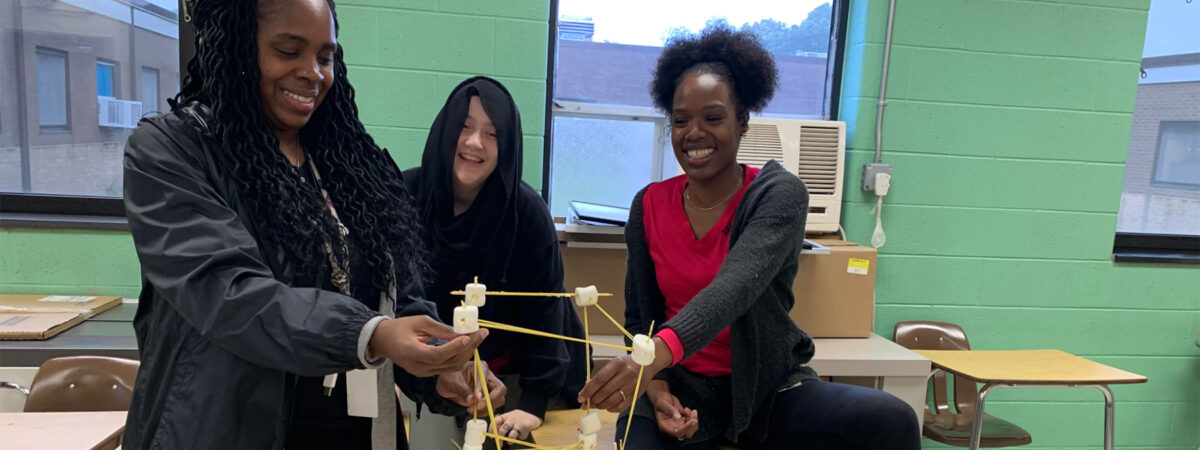
“Change is made when we make it.” - Bristol Township School District community member
Through research, they identified their priority problem: The Bristol Township School District community of students, staff, and parents need intentional opportunities to discuss, learn about, share, and address issues surrounding race in order to better support the mental health of students negatively impacted by experiences and normalization of racism and the lack of its acknowledgement.
After diving into these issues, the team co-designed a three-pronged solution: student leadership training, community mentorship, and student-led teacher professional development. With support from Digital Promise’s Center for Inclusive Innovation and Christina Broderick-Royes of Intention Elevation, the team led by Damita Harvey of BristolCares built a community mentorship program from the ground up. The program was designed to support students in processing their own racialized experiences and provide carefully curated sessions that would teach students how to talk about race, suggest coping strategies for discussing hard issues, and build skills to share these stories and experiences with others. Because there are few spaces where diverse groups can discuss their experiences and feel heard and safe, students and community members were excited to speak on these issues.
One community member shared: “There are many challenges in our society that impact our youth today; for instance, they have lived through a pandemic, heightened racial tension, increased mental health challenges, financial turmoil, etc. Now, more than ever, they need to be surrounded by a community who supports them and reassures them that they will live productive and bountiful lives.”
Guided by the Inclusive Innovation process, the team worked together to co-research and co-design solutions. Oftentimes, schools and districts work in silos, with communities and families on the outside of the planning and developing stages of a project. Purposefully including community and student voices in the design process from the beginning demonstrated a high investment in the success of the program and trust between the educators, mentors, and students.
While the student population across the country is becoming increasingly diverse, the teacher population is not changing as rapidly. Students of color nationwide do not have access to educators that reflect their identities. The key to the success of this project was the recruitment, training, and retention of mentors from the community who reflect the students’ backgrounds and experiences. Five mentors were recruited for the first year of the program, and they met with the students biweekly during the school year. In each meeting, the mentors completed a trust-building activity and reflected on the day’s lessons, sharing their own personal experiences with students to support their development, when needed. The mentors intentionally created opportunities to listen to the lived experiences of the students, creating a safe space for their voices and stories to be heard and validated.
Through the program, students and mentors learned more about the impacts of racism on mental health, on themselves, and on others. Students discussed their concerns and felt empowered to change their community through honest conversations. At the end of the program, with their mentors’ support, the students designed and facilitated professional development in which they shared their stories and experiences of racial trauma in school and helped their teachers create action plans to increase inclusive practices in the classroom. Educators and parents saw the power in youth voices and were eager to respond to their needs. Participants realized that in order to create a holistic approach that supports the varying needs of students, community members must be invited and welcomed to the table.
To learn more, explore the resources below:

We want to hear from you!
Please take this 5-minute survey and help us serve you better.
